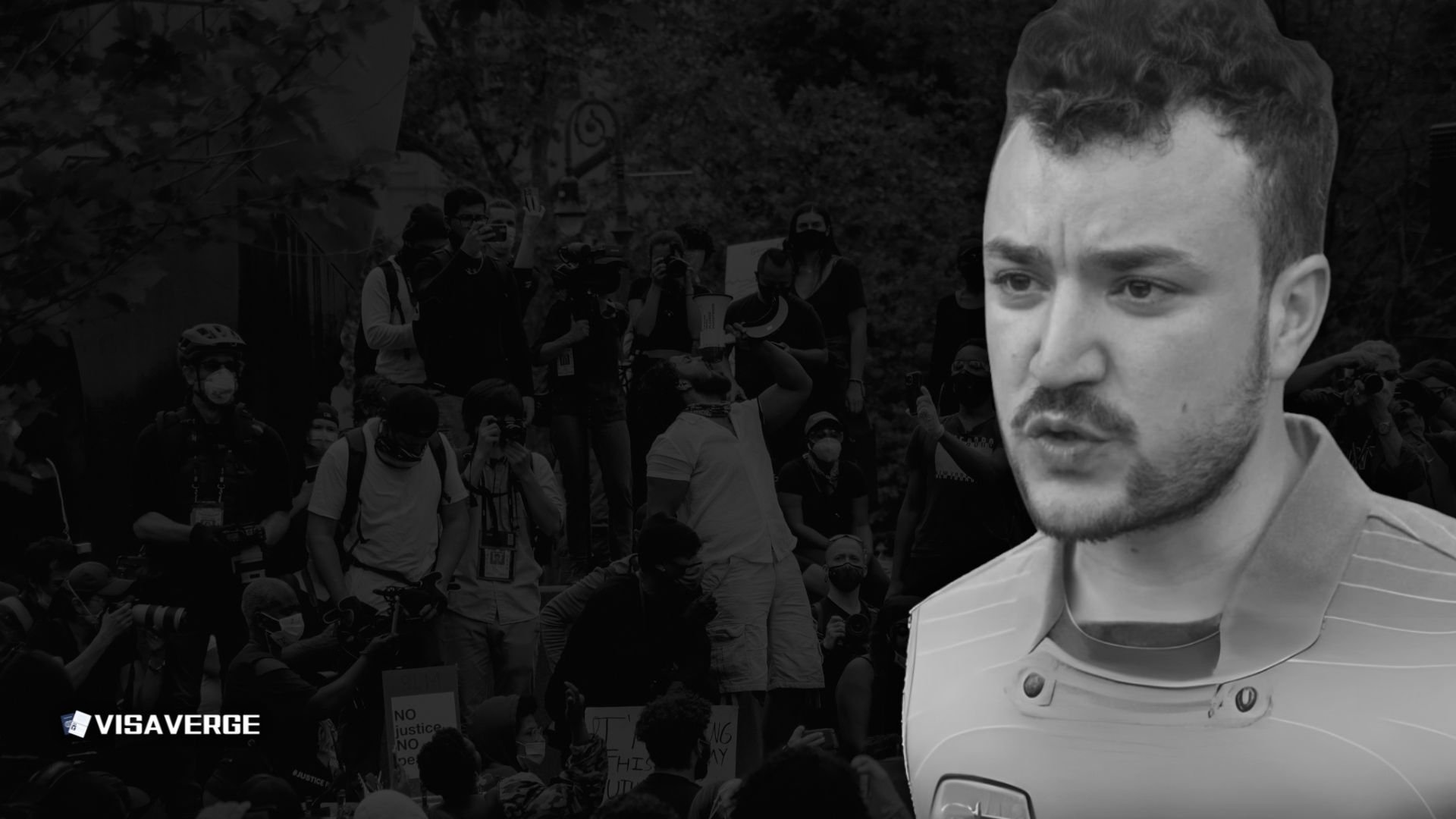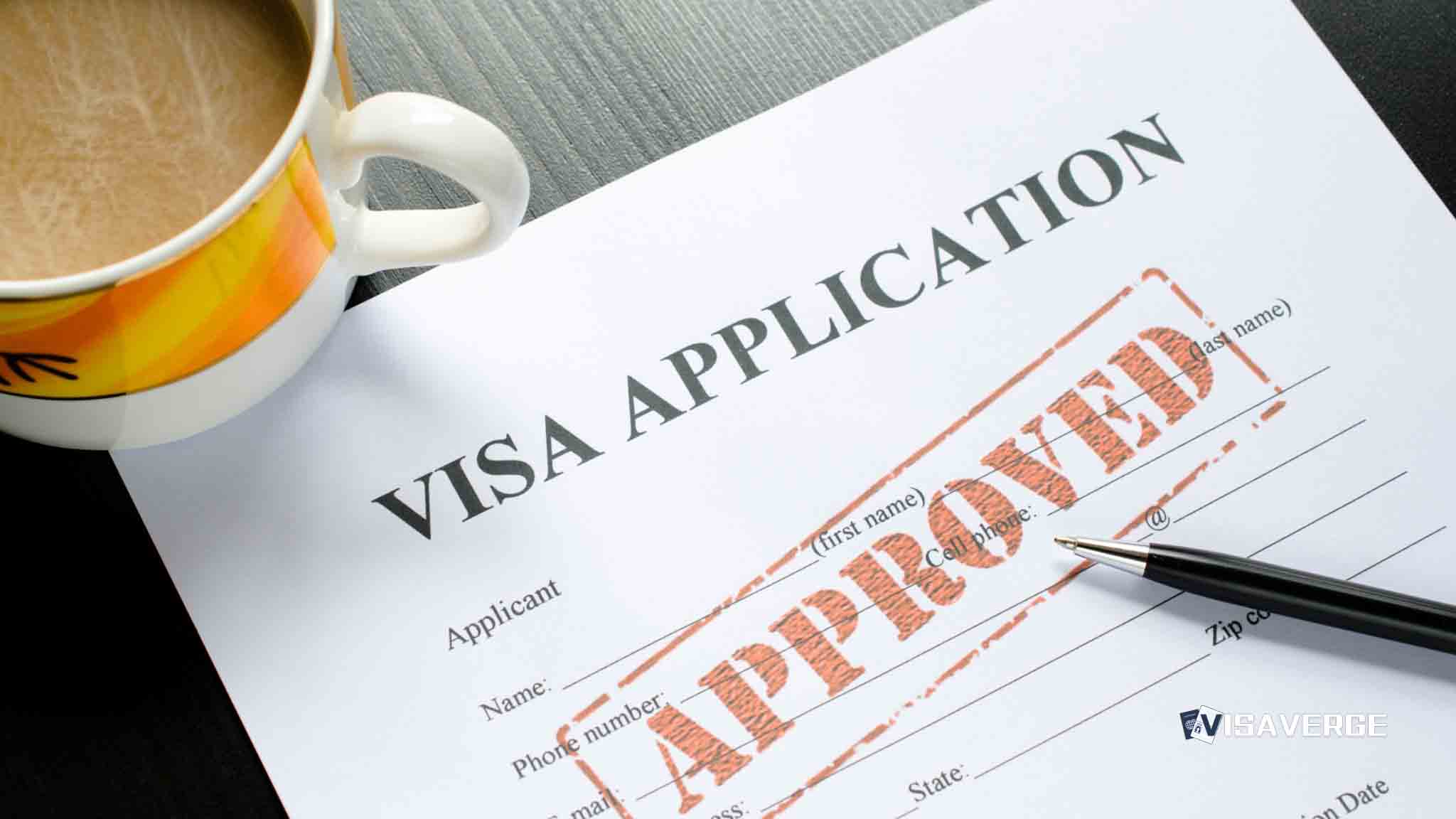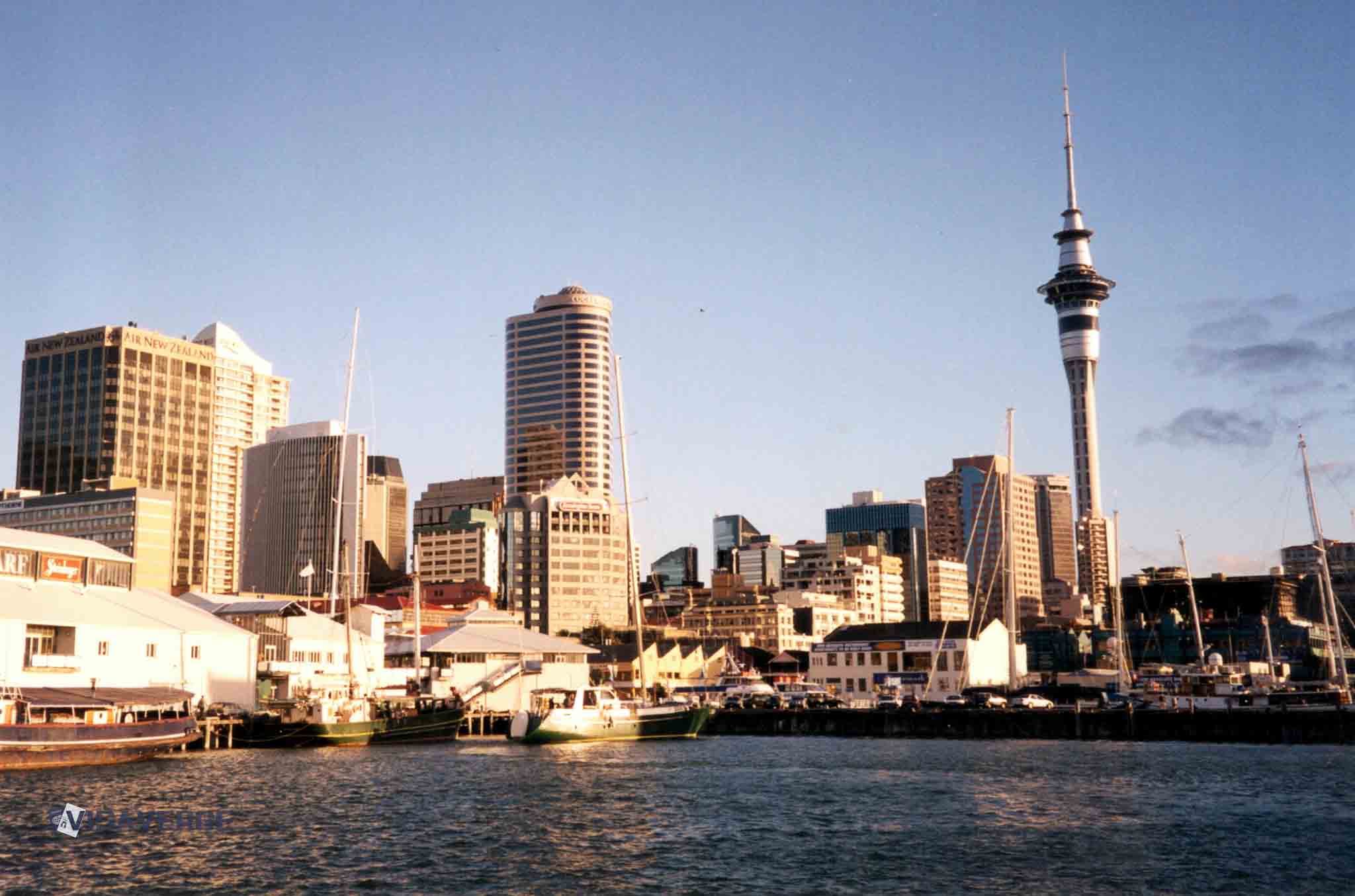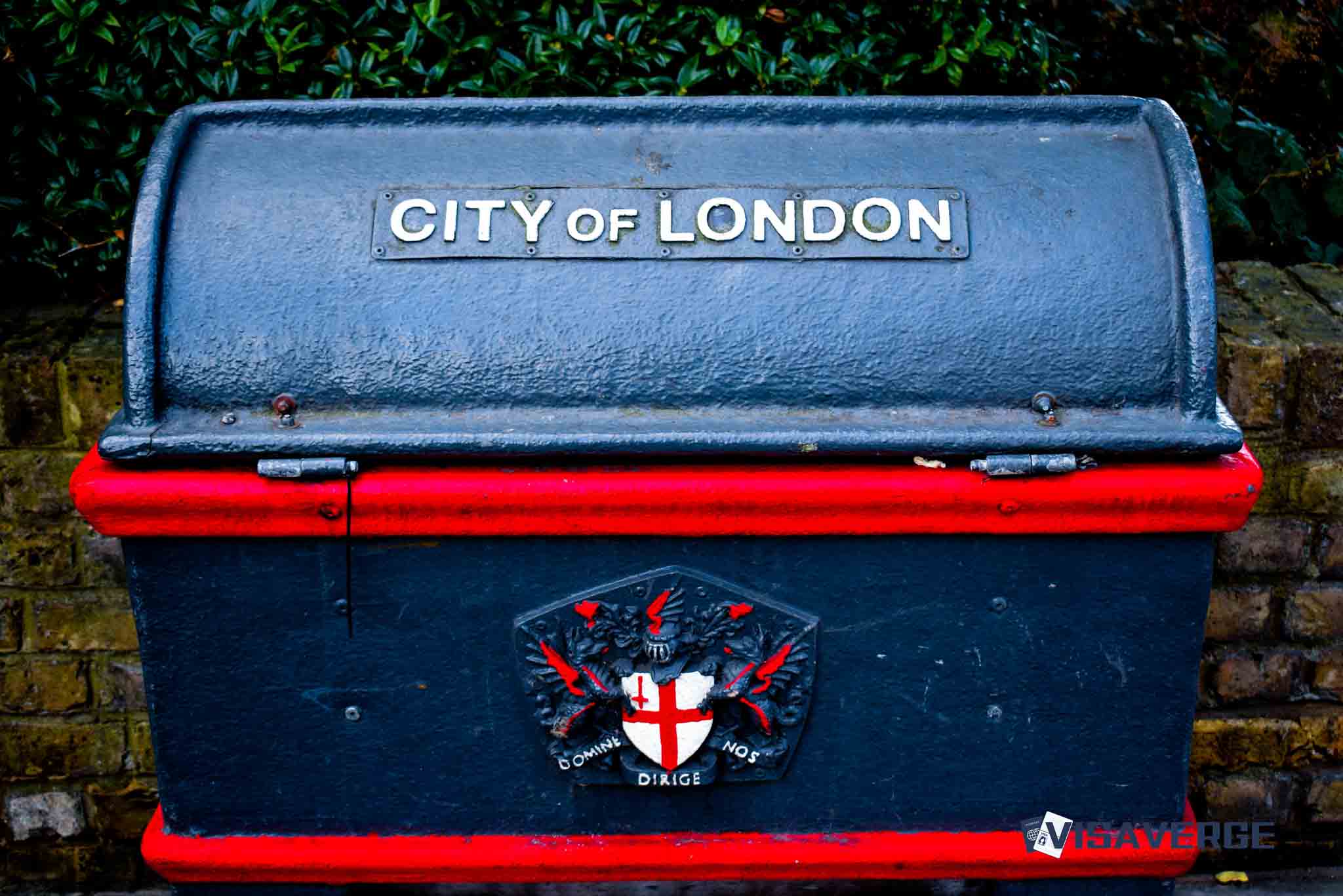Key Takeaways
• Mahmoud Khalil, a Syrian-Palestinian permanent resident and Columbia student, detained by ICE since March 2025.
• Denied contact visits until May 22, 2025, court ordered Khalil to hold his newborn son in Louisiana detention.
• Government cites political activism as national security risk; attorneys dispute criminal charges and seek deportation termination.
Mahmoud Khalil, a 30-year-old Columbia University graduate student and lawful permanent resident, has become the center of a high-profile immigration case that highlights the intersection of U.S. immigration law, political activism, and family separation. Detained by Immigration and Customs Enforcement (ICE) since March 2025, Khalil’s story has drawn national attention, raising questions about the use of immigration law in politically sensitive cases and the human impact of detention policies. On May 22, 2025, Khalil was finally allowed to hold his newborn son for the first time at the Central Louisiana ICE Processing Center (CLIPC), a moment that came only after court intervention and public outcry.
This article examines the details of Khalil’s detention, the legal arguments surrounding his deportation, the humanitarian concerns raised by his case, and the broader implications for immigrants, families, and institutions like Columbia University. It also provides practical information for readers seeking to understand how similar cases unfold and what rights and options are available to those facing immigration detention.

Who Is Mahmoud Khalil and Why Is He Detained?
Mahmoud Khalil is a Syrian-born Palestinian refugee who came to the United States as a lawful permanent resident. He was pursuing graduate studies at Columbia University in New York City when, in early March 2025, ICE agents arrested him at his university-owned apartment. Since then, Khalil has been held at the CLIPC in Jena, Louisiana—over 1,400 miles from his family and academic community in New York.
Khalil’s detention is not based on criminal charges. Instead, the Trump administration has invoked a rarely used section of U.S. immigration law, arguing that his presence in the United States poses “potentially serious foreign policy consequences.” Specifically, the government claims that Khalil’s activism and alleged associations threaten its foreign policy goal of combating antisemitism and that he poses a national security risk due to supposed ties to terrorist organizations. Khalil’s attorneys strongly dispute these claims, emphasizing that no criminal activity has been alleged or proven.
The Human Cost: Family Separation and Missed Milestones
Khalil’s detention has had a profound impact on his family. His wife, Dr. Noor Abdalla, gave birth to their son in April 2025 while Khalil remained in ICE custody. He missed the birth and, until recently, had not been allowed to meet his child in person. Dr. Abdalla traveled with their newborn from New York to Louisiana—a journey of over 1,400 miles—hoping for a contact visit that would allow Khalil to hold his son for the first time.
Initially, ICE and the private prison contractor GEO Group denied the family’s request for a contact visit, citing a “blanket no-contact visitation policy” and unspecified security concerns. The American Civil Liberties Union (ACLU) reported that these restrictions were applied even in the face of urgent humanitarian need. Dr. Abdalla described the denial as “deliberate violence, the calculated cruelty of a government that tears families apart without remorse.”
A federal district judge in New Jersey intervened, ordering ICE to allow an in-person meeting before 10:30 a.m. Central Time on May 22, 2025. While the order did not specifically require the newborn’s presence, the facility ultimately permitted Khalil to meet and hold his son. This moment, though brief, underscored the emotional toll of immigration detention on families and the power of judicial oversight in protecting basic human rights.
Legal Proceedings: Complexities and Uncertainties
Khalil’s legal situation is complicated and ongoing. The main points of his case include:
- Deportation Order: In April 2025, an immigration judge ruled that Khalil could be deported after the government argued his presence threatened U.S. foreign policy interests.
- Motion to Terminate Proceedings: Khalil’s attorneys have filed a motion to terminate the deportation process, arguing that the government’s case is based on political speech and unsubstantiated allegations.
- Federal Restraining Order: A federal district judge in New Jersey has issued a restraining order preventing Khalil’s removal from the United States until the federal case is resolved.
- Potential Appeals: If necessary, Khalil’s legal team plans to appeal to the Board of Immigration Appeals, the highest administrative body for interpreting and applying immigration laws.
The government’s case relies heavily on a letter from Secretary of State Marco Rubio, which outlines concerns about Khalil’s activism but does not allege any criminal wrongdoing. According to analysis by VisaVerge.com, the use of such letters in deportation cases is rare and controversial, as it raises questions about due process and the limits of executive power in immigration matters.
For readers interested in the legal process, immigration court proceedings often involve complex forms and filings. The main form used to initiate removal proceedings is the Notice to Appear (Form I-862), which outlines the government’s charges against an individual. Appeals to the Board of Immigration Appeals can be filed using Form EOIR-26.
Government’s Justification: National Security and Foreign Policy
The Trump administration’s position in Khalil’s case is notable for its reliance on national security and foreign policy arguments rather than criminal allegations. The government claims that Khalil’s activism—particularly his involvement in pro-Palestinian protests at Columbia University—undermines its efforts to combat antisemitism and threatens U.S. interests abroad.
- No Criminal Charges: Khalil has not been charged with any crime, and the government’s evidence consists mainly of statements about his political activities.
- Foreign Policy Concerns: The administration argues that allowing Khalil to remain in the country would send the wrong message to international partners and could have “potentially serious foreign policy consequences.”
- National Security Allegations: While the government has suggested ties to terrorist organizations, Khalil’s attorneys insist these claims are baseless and politically motivated.
This approach has drawn criticism from civil rights advocates, who argue that it sets a dangerous precedent for targeting immigrants based on their political beliefs or activism. Baher Azmy, legal director of the Center for Constitutional Rights, stated: “The government chose to arrest and detain Mahmoud thousands of miles away in the Louisiana detention gulags to punish him for his support for Palestinian human rights, and is doubling down on their retaliatory punishment by denying him the most elementary human contact with his wife and child.”
Institutional and Public Response
Khalil’s case has sparked strong reactions from both his academic community and the broader public. At Columbia University, his absence was acknowledged during the 2025 commencement ceremony. Acting President Claire Shipman addressed the issue, saying, “I know many in our community today are mourning the absence of our graduate Mahmoud Khalil.” The mention was met with boos from graduates, reflecting widespread frustration and concern among students and faculty.
Civil rights organizations, including the ACLU and the Center for Constitutional Rights, have condemned Khalil’s detention and the denial of family contact. They argue that his case is part of a broader pattern of targeting legal immigrants who have criticized U.S. policies in Gaza. Some individuals in similar situations have been released from detention after federal judges granted habeas corpus petitions—a legal tool that allows detainees to challenge the lawfulness of their detention.
The administration’s broader immigration strategy has included framing unauthorized immigration as “the invasion at the southern border” and considering extreme measures such as suspending habeas corpus to facilitate mass deportations. These policies have heightened fears among immigrant communities and raised concerns about the erosion of constitutional protections.
The Role of ICE and Private Contractors
Immigration and Customs Enforcement (ICE) is responsible for enforcing immigration laws and detaining individuals who are subject to removal proceedings. In Khalil’s case, ICE has worked with the private prison contractor GEO Group to manage the CLIPC facility in Louisiana. Critics argue that the use of remote, privately run detention centers makes it harder for families to visit and for detainees to access legal representation.
- Distance from Family: Khalil’s placement in Louisiana, far from his home in New York, has made it difficult for his wife and newborn to visit.
- Visitation Policies: The facility’s initial refusal to allow a contact visit highlights the challenges families face in maintaining relationships during detention.
- Legal Access: Detainees in remote locations often struggle to find qualified immigration attorneys, which can affect their ability to mount an effective defense.
For those seeking information about ICE detention policies and detainee rights, the official ICE Detainee Information page provides up-to-date resources.
Broader Implications: Political Speech and Immigration Law
Khalil’s case raises important questions about the intersection of political speech and immigration enforcement. His attorneys argue that he is being targeted for his role in campus protests and his advocacy for Palestinian rights—activities that are protected under the First Amendment. If the government is allowed to deport lawful permanent residents based on their political beliefs or activism, it could have a chilling effect on free speech and academic freedom.
- First Amendment Concerns: Legal experts warn that using immigration law to punish political speech undermines constitutional protections.
- Academic Freedom: Universities like Columbia face pressure to support students and faculty who engage in controversial or unpopular speech.
- Precedent for Future Cases: The outcome of Khalil’s case could influence how similar cases are handled in the future, particularly for immigrants involved in political activism.
What Happens Next? Practical Guidance for Immigrants and Families
As of May 22, 2025, Mahmoud Khalil’s immigration hearing is ongoing, and his legal team continues to fight his deportation on multiple fronts. The case remains unresolved, and the outcome will depend on the decisions of immigration judges, federal courts, and potentially the Board of Immigration Appeals.
For immigrants and families facing similar situations, the following steps are recommended:
- Seek Legal Representation: Immigration law is complex, and having an experienced attorney can make a significant difference. Organizations like the ACLU and local legal aid groups may offer assistance.
- Know Your Rights: Detainees have the right to challenge their detention through habeas corpus petitions and to request bond hearings.
- Document Everything: Keep records of all communications with ICE, attorneys, and the courts. This documentation can be critical in legal proceedings.
- Engage Community Support: Public attention and advocacy can influence outcomes, as seen in Khalil’s case. Reach out to civil rights organizations, academic institutions, and the media when appropriate.
- Monitor Official Resources: Stay informed through official government websites, such as USCIS and ICE, for updates on policies and procedures.
Conclusion: The Stakes for Mahmoud Khalil and Beyond
Mahmoud Khalil’s case is more than a personal struggle; it is a reflection of the broader challenges facing immigrants in the United States today. His detention, the denial of family contact, and the government’s reliance on political and national security arguments raise serious questions about due process, human rights, and the future of immigration law.
As his legal battle continues, Khalil’s story serves as a reminder of the importance of legal representation, judicial oversight, and public advocacy in protecting the rights of immigrants and their families. The outcome of his case will not only determine his future but may also set important precedents for how the United States balances security, foreign policy, and the fundamental rights of those who call this country home.
For ongoing updates and authoritative analysis of cases like Khalil’s, readers can consult resources such as VisaVerge.com and official government sites. The struggle for justice in immigration cases is ongoing, but informed action and community support remain powerful tools for those seeking to keep families together and uphold the principles of fairness and due process.
Learn Today
Lawful Permanent Resident → A non-citizen authorized to live and work permanently in the United States.
ICE (Immigration and Customs Enforcement) → U.S. federal agency enforcing immigration laws, including detaining individuals subject to removal.
Deportation → The legal process of removing a foreign national from the United States.
Habeas Corpus → A legal petition challenging unlawful detention or imprisonment.
Notice to Appear (Form I-862) → Official document initiating removal proceedings against an individual in immigration court.
This Article in a Nutshell
Mahmoud Khalil’s prolonged ICE detention raises critical immigration law questions, mixing political activism with family separation. His case highlights judicial impact, legal complexities, and human costs of enforcement policies. Khalil’s first contact with his newborn came after public and legal pressure, marking a pivotal moment in immigration advocacy and rights protection.
— By VisaVerge.com
Read more:
• Death at Phelps County Jail raises questions about ICE custody
• Aditya Wahyu Harsono Walks Free After ICE Custody
• Disabled Man Trapped in ICE Custody Under Trump Orders
• Nine Die in ICE Custody Under Trump’s Watch
• Cliona Ward Walks Free After ICE Custody Shock













